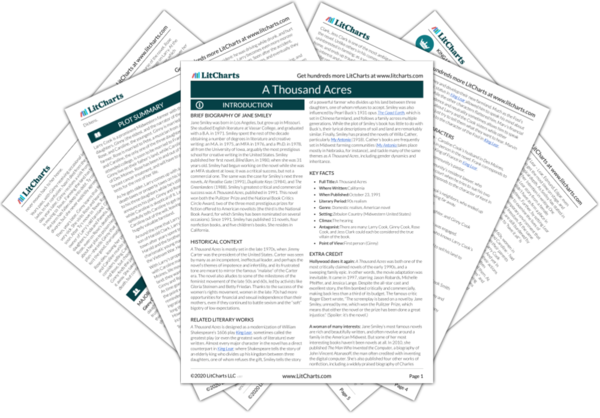Here, in a nutshell, Smiley lays out the premise of the novel (and of
King Lear)—an elderly patriarch divides up his possessions between three daughters. In the play, it’s suggested that Lear divides up his kingdom while he’s still alive because he wants to prove to himself that he has some inherit majesty, independent of his crown. In the novel, Larry divides up his farm while he’s still alive because he wants to avoid property taxes. Notice that we’re offered no explanation for why Caroline turns down the offer of so much money and power (though based on
Lear, one could guess that it’s because she’s more loving and less greedy than her siblings). So far, Ginny has seemed like an even, levelheaded character, but her behavior here suggests a hidden greed for Larry’s land—a desire that’s rooted, admittedly, in her family legacy, and seems pretty legitimate (she is his heir, after all).
